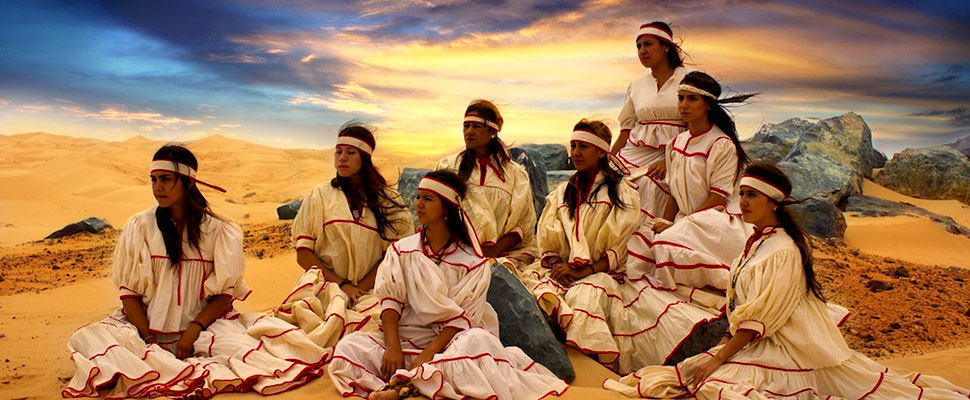Lorena Ramírez: The Mexican indigenous athlete who shines in Europe
She belongs to the Rarámuris, a mountain town with a long tradition in athletics and now Ramírez has her own place in history

Lorena Ramírez Hernández is a young Mexican athlete who on June 9 achieved the third place in the Cajamar Tenerife Bluetrail. Throughout the world, she has attracted attention particularly for being indigenous, although not simply for this fact. Ramírez is part of the long tradition that the Rarámuri people have with their athletes. The achievement of Ramírez joins others Mexican athletes that have accomplished different titles worldwide.
Leer en español: Lorena Ramírez: La atleta indígena mexicana que brilla en Europa
An athlete with light feet
Rarámuri means "light feet", although they are traditionally known as "tarahumaras", a name imposed by the Spanish conquistadors. However, it is important to clarify that the term with which they identify is the first.
The most internationally known indigenous Mexican region is that which corresponds to Mesoamerica where the Mayans, Mexicas (Aztecs), Zapotecs, and Mixtecs, among others, coexisted. However, northern Mexico is different, because geographically it is mostly desert and largely mountainous. The Rarámuris live in the region known as the Sierra Tarahumara, a mountainous area with deep canyons, bigger and deeper than the famous Canyon of Colorado, as stated by the magazine Mexico Desconocido.
Also read: This is Chepe, the spectacular train of northern Mexico
According to the site Verne El País, the Latin American athlete completed the 102 kilometers of distance in a time of 20:11:37 , which earned her the third place in the senior category, reserved for competitors between 18 and 39 years. With just 23 years old, Ramírez has already achieved her place in history. To size up the importance of her achievement, Verne itself gives some figures that corroborate it.
The competition held in Tenerife in the Teide National Park brought together 2,800 participants from 38 countries, who competed on difficult terrain up to a height of 3,500 meters above sea level. For the Mexican competitor, it was her second competition in a European ultramarathon, since last year she also competed in Tenerife suffering an injury to the 55 kilometers that prevented her from continuing. However, her participation was an event, since it was, according to Verne, the first Rarámuri woman to be part of a competition of this kind in Europe.
In 2017, the same site dedicated an interview to Ramírez prior to the competition to learn more about her life in Mexico and her preparation as an athlete. In A day in the mountains with Lorena Ramírez, it can be seen that she comes from a family of athletes with her brothers and that preparation to compete is not a special issue, but is the result of the daily effort that comes from childhood.
Living for centuries in the mountains and with communication difficulties, the Rarámuris have shown great adaptation to their environment, so walking and running long journeys for hours is part of their daily lives. Unfortunately, it is a region in which poverty is common. As she herself says to Verme, they do not have a special preparation to compete, their daily routines are enough to achieve it.
In addition, they do not use special sports clothing, compete with their traditional clothes and especially with their sandals, which they consider more comfortable and lighter than tennis. This says a lot about them, they are people who respect their place of origin, their traditions and their culture. For example, economic awards obtained in competitions are intended for the community and not as personal gain. Because of this, the Rarámuris are known in Mexico as an ancestral people.
Latin American Post | Luis Liborio
Translated from “Lorena Ramírez: La atleta indígena mexicana que brilla en Europa”





